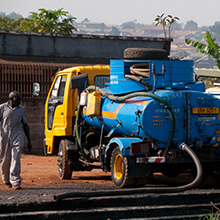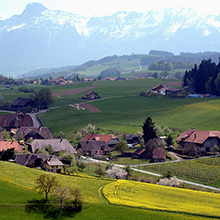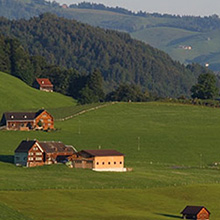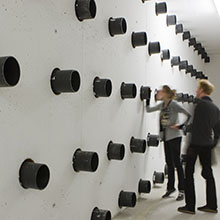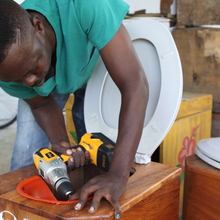Department Environmental Social Sciences
Water and Sanitation innovations for non-grid solutions
Research at the Environmental Social Sciences (ESS) Department aims at understanding the mechanisms and conditions under which urban water management (UWM) systems can be directed into more sustainable directions. ESS research contributes to the inter- and transdisciplinary strategic research program Wings (Water and sanitation innovations for non-grid solutions), which strives to develop novel non-grid systems that can function as comparable alternatives to conventional network-based urban water management systems.
Background
The management of urban water systems has been a core responsibility of civil society throughout history. This reflects the central importance of these systems for human welfare and environmental protection. The current conventional approach to urban water management builds on well-established socio-technical systems that have evolved over the last century and have solved most of the water- and hygiene-related problems afflicting OECD countries in the past. These predominantly centralized and networked systems reliably treat and provide drinking water and safely transport, treat, and dispose wastewater. Challenges are posed, however, by population growth (both increases and decreases), climate change, emerging contaminants, as well as by the need to rehabilitate and replace aging infrastructure.
Though there is still an ongoing debate whether there is a need for new approaches in OECD countries, leading research institutes, international organizations and national governments are increasingly acknowledging that the conventional approach to urban water management cannot be the only solution for rapidly expanding cities in low- and middle-income countries in Africa, Asia and Latin America. With centralized and networked urban water systems out of reach for a large part of the global urban population, there is an urgent need for developing fundamentally new approaches, i.e. more flexible, cost-effective, resource-efficient non-grid systems that are able to cope with current and future urban water challenges.
Typical research questions
Governance System Design
- What are the components of the prevailing socio-technical system? What rules, norms, and practices (de-)stabilize the system? Who plays a crucial role in maintaining or changing the prevailing system or in creating new ones?
- How does an ideal future institutional system look like?
System Integration, Implementation and Assessment
- How can alternative systems be integrated at the technical and institutional level to function properly?
- How can these integrated systems be implemented in a given context?
- How do different integrated systems perform at the technical and institutional level against the normative concept of sustainability? How do they perform compared to other systems?
Innovation and Transition Management
- What are typical transitions from the current prevailing system to the ideal future system? Which challenges can arise?
- How and why do innovations processes happen in a given context? What factors hinder and/or support transitions/ innovations?






